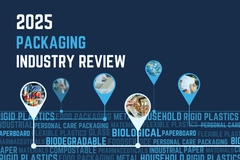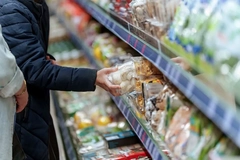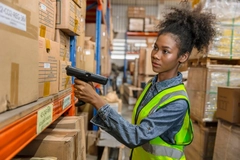Coca-Cola tackles Canadian packaging pollution with remote-controlled waste collector
The Coca-Cola Company in Canada is sponsoring a new remote-controlled, mobile waste collector named PixieDrone to help Canadian not-for-profit Pollution Probe collect floating debris including organic, plastic, glass, metal, paper and rubber. The solution can collect a bathtub’s worth of waste (160 L) in a six-hour charge.
The project is part of the Great Lakes Plastic Cleanup initiative, the largest environment cleanup initiative in North America.
Data and information on the types and amounts of plastic removed are collected and analyzed to better understand the plastic pollution profile for the Great Lakes region.
The new PixieDrone will join over 135 other plastic capture technologies already deployed by the initiative throughout the Great Lakes.
Christopher Hilkene, CEO at Pollution Probe, says: “We are grateful for the opportunity to work together with committed partners like The Coca-Cola Company to increase the impact of our collective efforts to end plastic pollution in the Great Lakes.”
The PixieDrone collects data and information on floating debris to better understand pollution.“The addition of the PixieDrone to our network of capture technologies will allow us to visit even more locations and communities and to remove significantly more plastic from the environment.”
At the Olympic Games in Paris this summer, Coca-Cola was criticized for its “double standard” strategy of filling reusable beverage cups with single-use plastic bottles.
Clean environment, fresh water
The Coca-Cola Company is supporting the technology to help remove plastic and other debris found in the Great Lakes, the largest freshwater system in the world.
The drone was tested on Lake Simcoe, along the waterfront in Barrie, Ontario, and will later be used at other Great Lakes Plastic Cleanup locations across the Great Lakes region starting early next year.
Avi Yufest, senior director for Public Affairs at The Coca-Cola Company in Canada, says: “Our company recognizes its responsibility to help address the plastic waste crisis. Projects like this, in addition to packaging innovations and recycling efforts, are one of the ways we are working to help keep our waterways and environment clean from plastic debris.”
The Great Lakes Plastic Cleanup operates at 150 sites across the Great Lakes, working alongside more than 105 collaborators.
To date, the Great Lakes Plastic Cleanup initiative has reported filtering an estimated 12.2 billion liters of water and removed nearly 200,000 pieces of floating waste, including plastic debris, bottles, cigarette butts, food wrappers and more.
The majority of the plastic removed to date are microplastics.
Meanwhile, The Coca-Cola Company and its African bottling partners Coca-Cola Beverages Africa (CCBA), Equatorial Coca-Cola Bottling Company (ECCBC) and Coca-Cola HBC announced an investment of nearly US$25 million to address water-related challenges in Africa.











